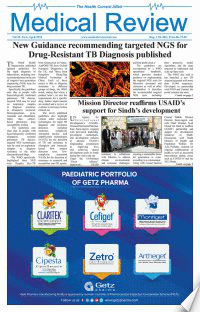The Field Epidemiology and Disease Surveillance Division, National Institute of Health (NIH) has issued an advisory for prevention and treatment of typhoid fever. According to NIH, the advisory was issued keeping in view the increased number of typhoid fever cases in the country and isolation of multi-drug resistant salmonella typhi. It said the situation demanded immediate necessary measures to curtail further transmission, timely and prompt treatment of typhoid cases. It said the objective of this advisory was to sensitize health authorities to take in-time and appropriate actions for preparedness and prevention of typhoid fever. The disease is endemic in Pakistan and numerous outbreaks are reported during summer and monsoon seasons each year.
Any person with acute Illness and fever of at-least 38°C for three or more days with abdominal symptoms like diarrhoea, constipation, abdominal tenderness and prostration should be considered as suspected case. It said typhoid infection occurs through feco-oral route and infection spreads through contaminated food, milk, frozen fruits and water or through close contact with already infected persons. The contamination of food and water usually occurs due to poor sanitation and mixing of sewerage water with drinking water while the incubation period depends on the inoculum size and host factors like three days to more than 60 days with a usual range of eight to 14 days. It said preschool children are at greater risk of developing disease and usually have milder symptoms than the adults do. Travellers or workers in endemic areas and care givers of the patient infected with salmonella typhi are also at higher risk. It said that s. typhi can be isolated from blood during the first week of illness or from stool and urine after the first week of illness. Patients having a history compatible with case definitions should immediately report to the hospital. Antibiotics should be taken according to doctor’s instructions and full course should be completed while unnecessary use of antimicrobial agents should be discouraged to treat the patients presenting with fever.
It recommended hand washing with soap and water after using toilet, before and after attending patients, before handling, cooking, eating and using boiled, bottled or treated water. It also recommended washing fruits and vegetable properly before eating them. It also recommended eat freshly cooked, hot served and home-made food. It advised to avoid eating raw fruits or vegetables, market prepared or leftover food and avoid drinking untreated or contaminated water and milk.


